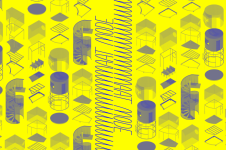Cao Guimarães
A selection of short films
by Inês Grosso
Shown here from 20 November to 30 November 2020.
With no predefined script and always with a curiosity and attentiveness towards the surrounding environment, most of Cao Guimarães’ films are contemplative exercises of re-signification of everyday life which poetically and introspectively try to capture (and retain) the irreversible course of time and all the trivial events that would otherwise be lost to oblivion. The ephemeral, the random, the sounds of emptiness, the gesture and memory become the inspiration and driving force behind an artist continually looking for new ways to see, hear and feel the world. Other works, even though structured according to formal concepts and propositions that guide the narrative, are equally subject to happenstance and the stimuli of the external world, creating a tension between the fictional and the documentary and between cinematic and real time.
— Inês Grosso, maat curator
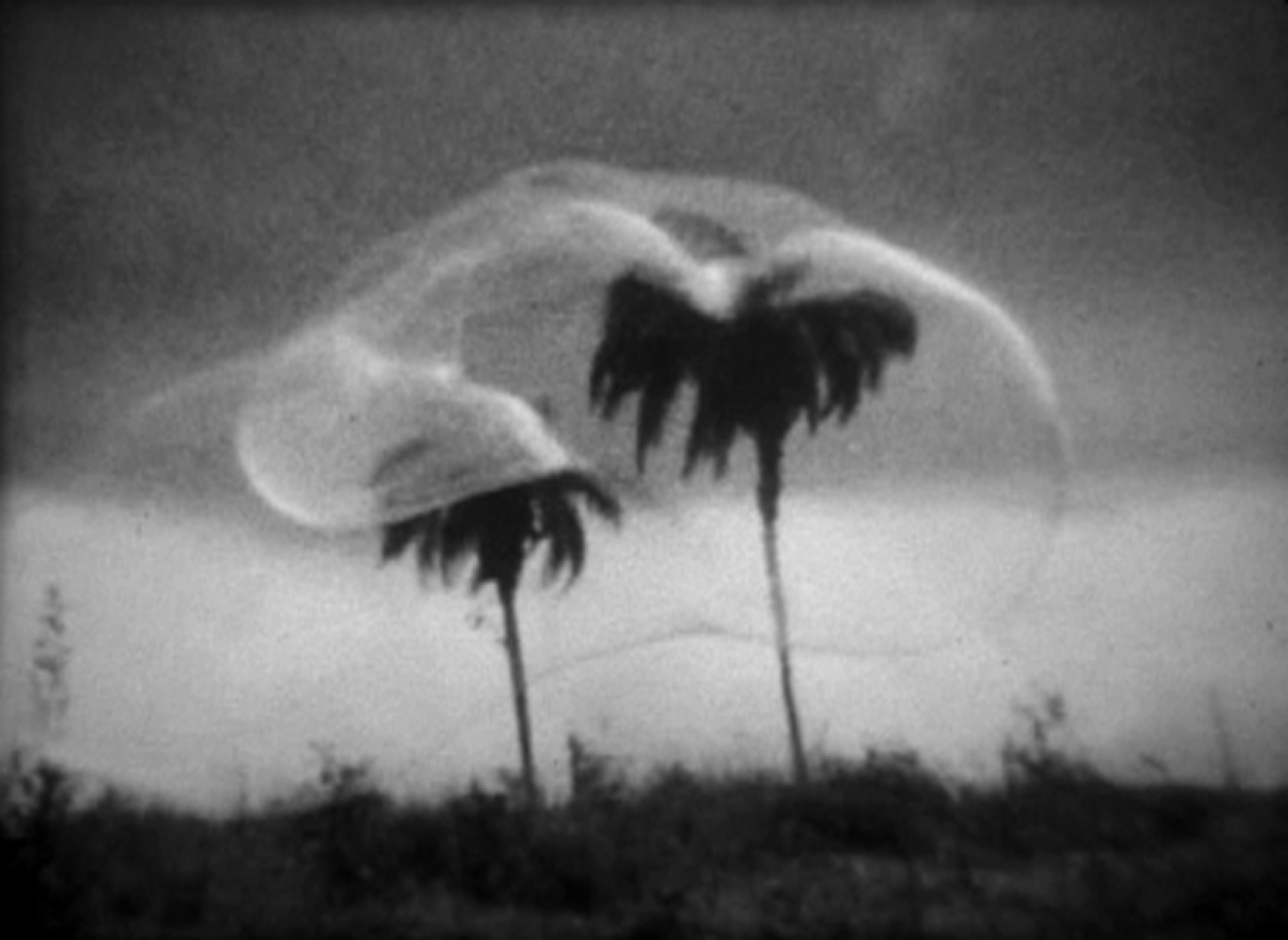
|
Cao Guimarães, with Rivane Neuenschwander, video still from "Sopro / Blow", 2000. Super 8 transcribed to DV, black and white, no sound, 5'30'' |
|
|
... The other day I met an ex-classmate at the airport. |
It had been 30 years since we had last seen each other. To my surprise, she told me she remembered me as a good student, always walking around with a battered bookbag. I told her that I was never a good student and that appearances can be deceiving. I was always too lazy to complete assignments and fulfill duties, especially the ones I had no interest in. Ócio, the Portuguese word for idleness (from the Greek scholé), is derived from the word school. The day I found that out I felt a kind of confirmation of what I intuitively had been practicing from the time I was a schoolboy. One of the foundations of my work process is idleness.
I could thus say that one of the “machines” that can build my work is not a verb but a noun designating a state of being. At least in the beginning. Before acting one has to let oneself be overtaken by the desire to act, one has to let oneself be won over by that willingness. And I feel “willingness” as a kind of cloud or atmospheric coating that slowly begins to envelop my being; it generally appears when I’m comfortable, that is, when I’m available and open to the arrival of this willingness.
The “school” of idleness, contrary to what it might seem, especially in the world we live in, doesn’t easily grant diplomas. It’s what society rejects the most, because if the word “school” has acquired a positive meaning in modern society, the word “idleness” goes completely against what it values. The “idler” has become synonymous with “bum,” which negates the etymological nobility of the Greek word. Being idle means being open to knowledge. There’s a difference between “not doing anything” and “doing nothing.” When I’m “doing nothing,” I’m dealing with an absolute, Nothingness (a divine word!). When “I’m not doing anything,” I’m doing whatever, I’m a useful being to a society that privileges, precisely, “whatever.”
One of the foundations of my work process is idleness.
Cao Guimarães |
|
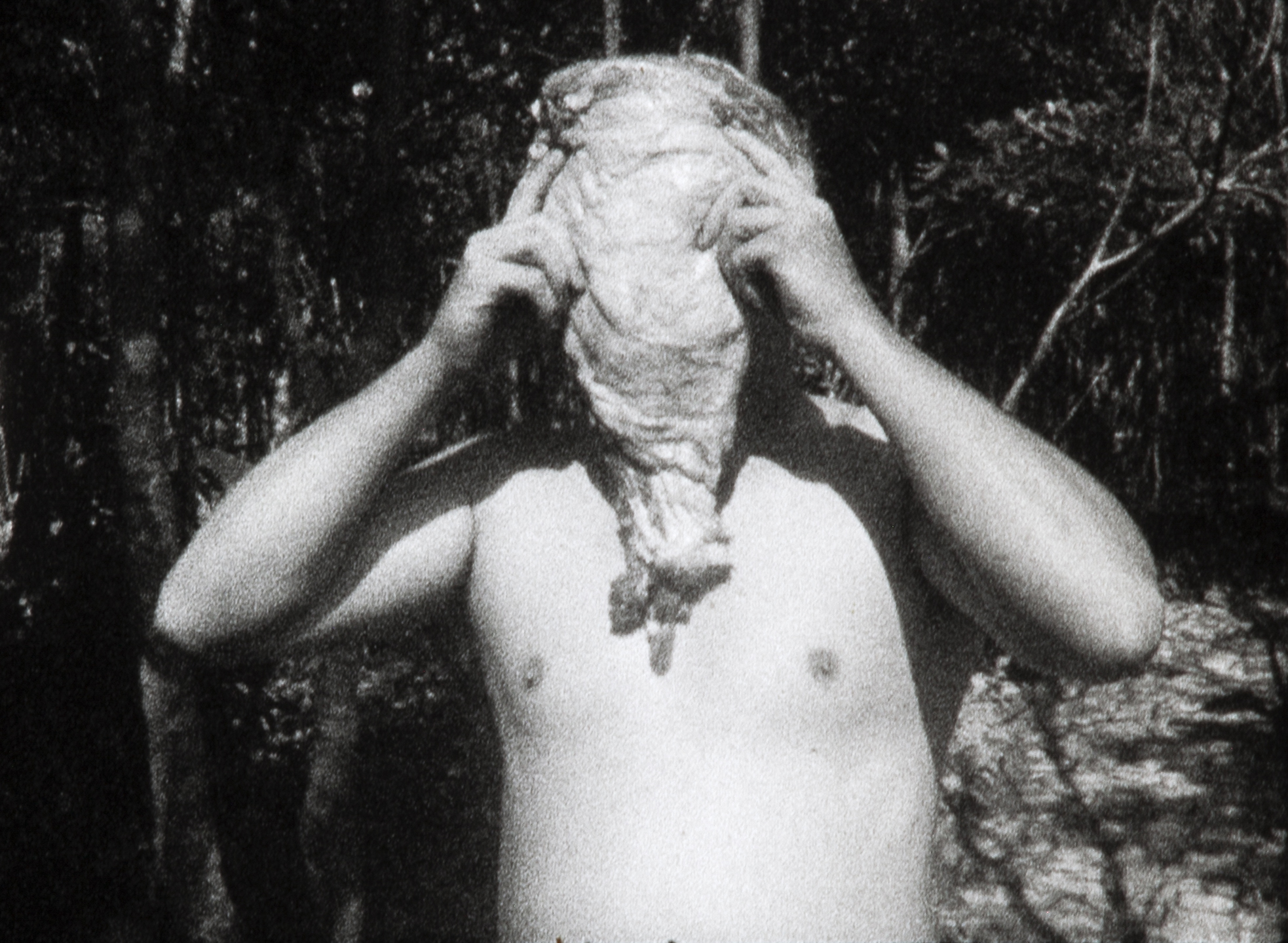
|
[above] Cao Guimarães, video still from "Aula de Anatomia / Anatomy Class", 2003. Super 8 transcribed to DV, black and white, sound, 8'3''
|
[below] Cao Guimarães, with Rivane Neuenschwander, video still from "O Inquilino / The Tenant", 2010. Full HD, 16:9, colour, sound, 10'34''. |
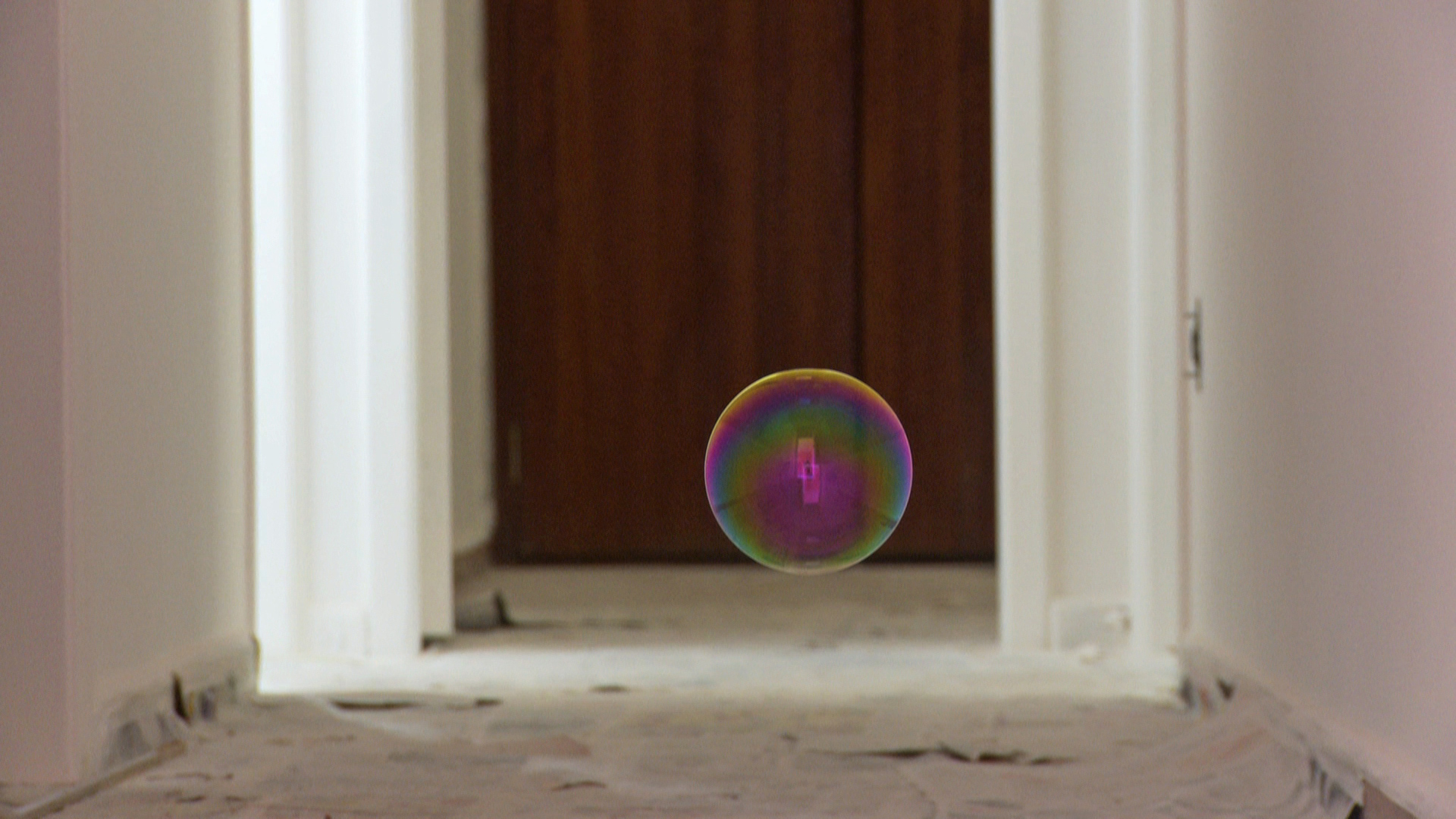
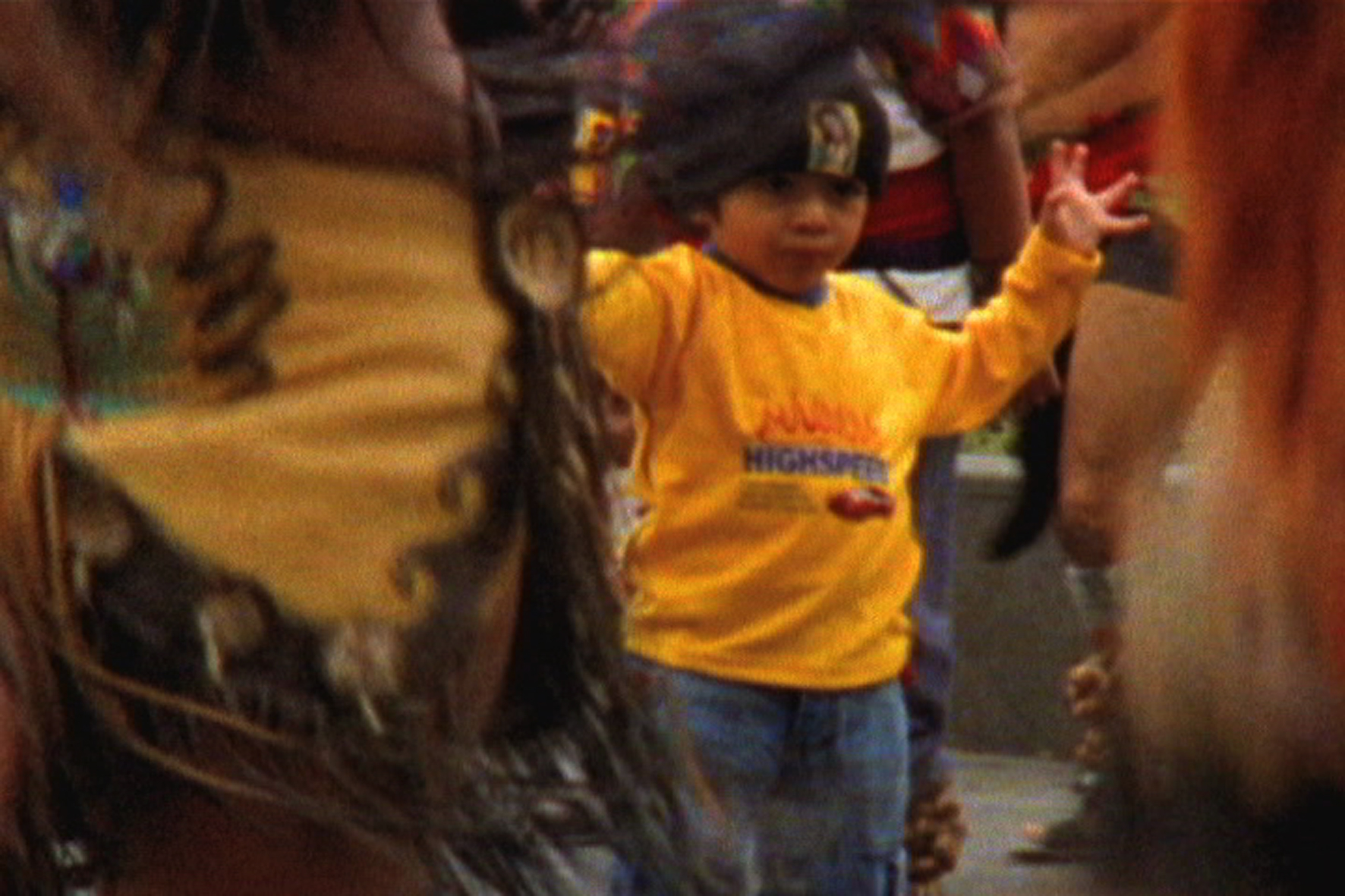
|
[above] Cao Guimarães, video still from "Peiote / Peyote", 2006. Super 8 transcribed to DVD, colour, 4'6''.
|
[below] Cao Guimarães, video still from "El Pintor Tira el Cine a la Basura / The Painter Throws the Film in the Garbage Can", 2008. HDV, colour, sound, 5'55''. |
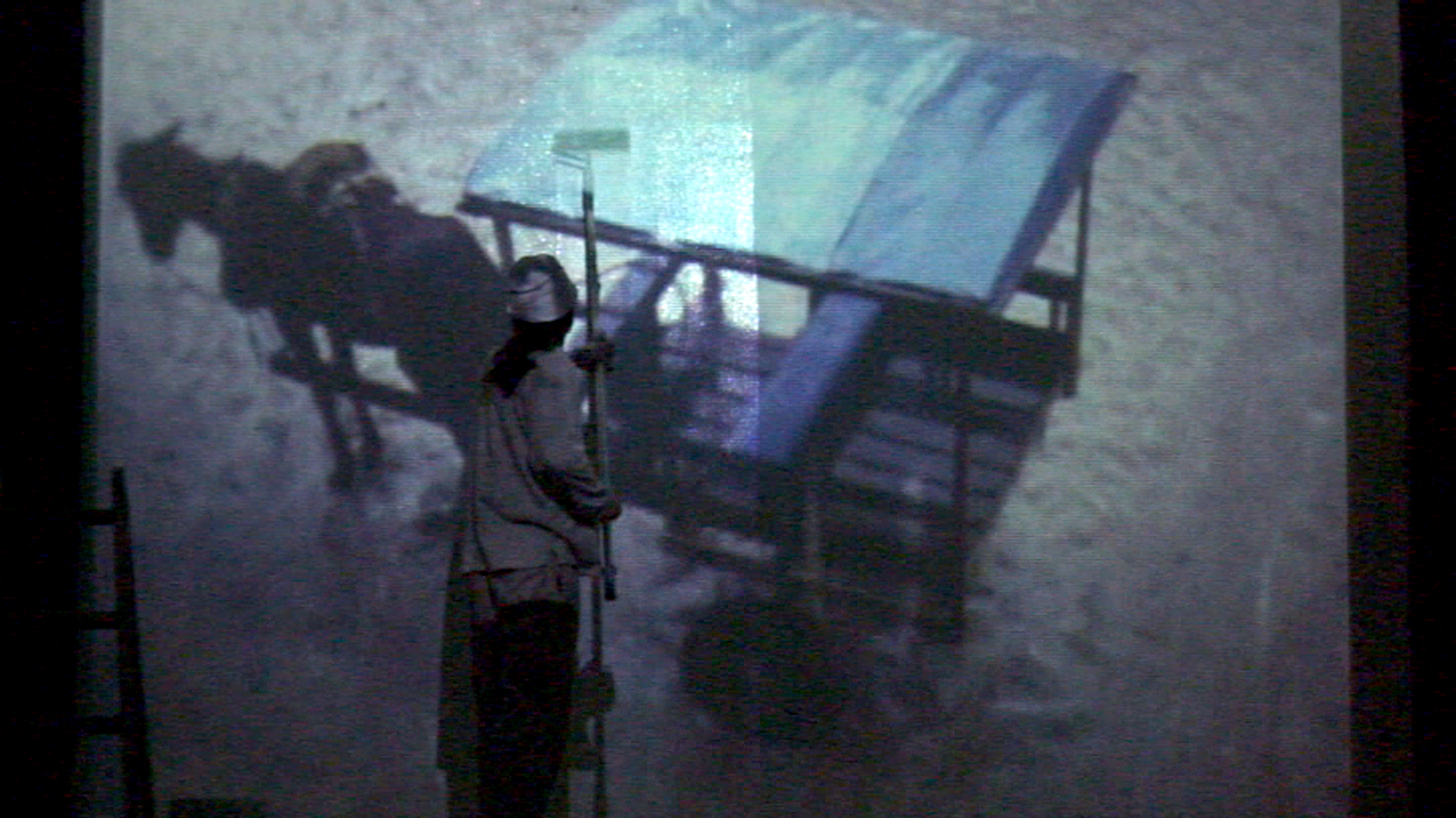
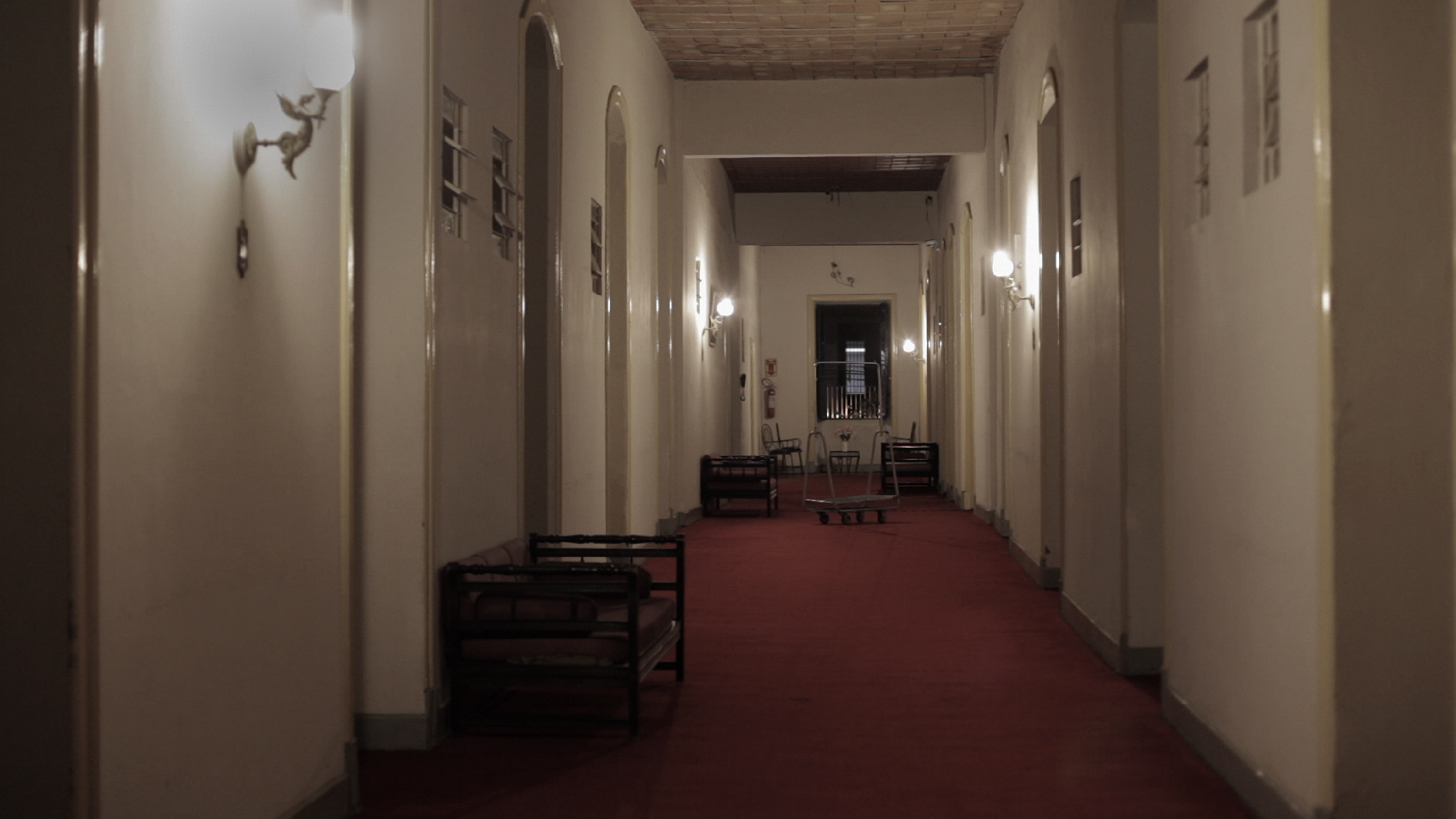
|
Cao Guimarães, video still from "Palace Hotel", 2015. Full HD, 16:9, colour, sound, 3'39''. |
|
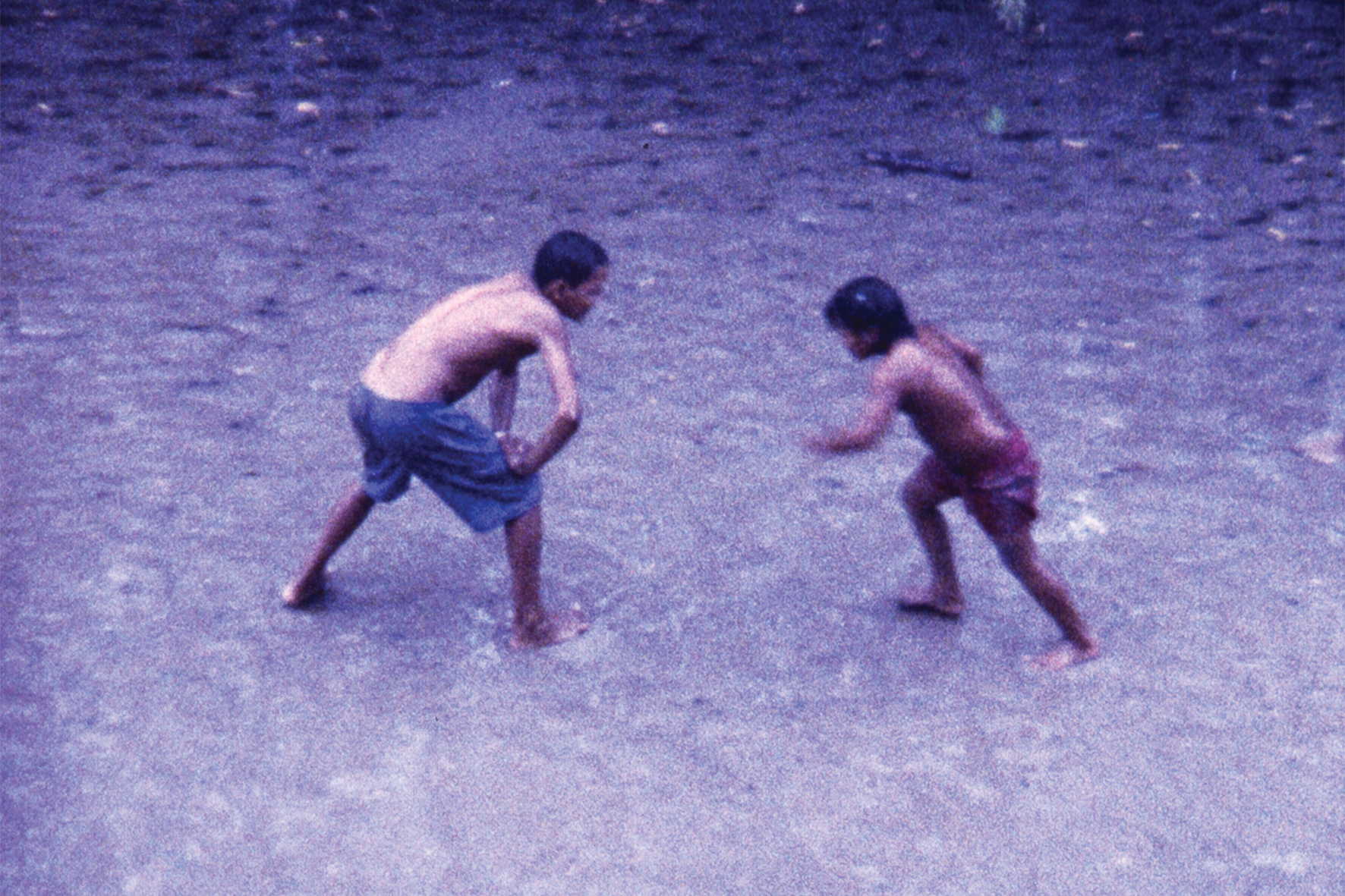
|
[above] Cao Guimarães, video still from "Da Janela do Meu Quarto / From the Window of My Room", 2004. Super 8 and 35 mm transcribed to DV, colour, sound, 5'11''. |
|
This suggests the old idea of the uselessness of art. To make a piece of bread and to paint a piece of bread. Between the verbs to make and to paint, there’s a noun, bread, which needs to be eaten. Which of the two breads is more nutritious—the one eaten by the mouth or the one eaten by the eyes? When I’m eating bread, I’m clearly delaying my death, but when I see a painting of bread, wouldn’t I be learning how to die better? To do Nothing, wouldn’t that be learning how to die?
After this entire discussion, I’ve arrived at a phrase that could be written on my tombstone: “I spent my Life producing Nothing in order to learn how to Die.” I know that it’s worth nothing but at least it’s something… There’s yet another verb I would add to this “verbal machinery of the construction of a work”: to die.
|
"Cao Guimarães and Marilá Dardot", originally published in BOMB 102, Winter 2008.
|
|
Cao Guimarães’ work derives from an expanded approach towards cinema, transitioning from film into video, creating connections with the visual arts while still using cinematic language. His imagery creates an inventory of distinct and perhaps visually intriguing moments of everyday life, such as ants carrying confetti after Carnival, or soap bubbles floating along the corridors of an empty house. Always seeking to document the ordinary, Guimarães finds poetry in unexpected places and situtations. His films have been exhibited in several festivals such as the Berlin International Film Festival (2014), Sundance Film Festival (2007), Cannes Film Festival (2005) and Rotterdam International Film Festival (2005, 2007 e 2008).
|
Cao Guimarães has been included in the maat Mode 2020 programme with a selection of films especially thought by Inês Grosso for a Portuguese audience, which is largely unfamiliar with his work. During three sessions, occuring in July, August and November 2020, the main screen of Beeline presents a comprehensive selection of short and feature-length films directed by Cao Guimarães over the last two decades, including “From the Window of my Room” (2004), “Breath” (2000), and “The Man of the Crowd” (2013).
|


